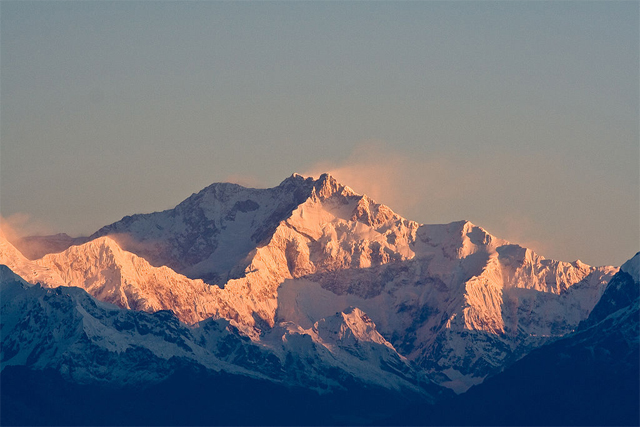According to a news story last Thursday, the national government of India has changed its decision about allowing international mountaineering expeditions to climb Mt. Kanchenjunga, the world’s third highest peak and a sacred spot for the Lepcha and Bhutia peoples of Sikkim. The government had announced back in August that the mountain would be open to climbers despite the religious beliefs of the people of Sikkim. The people had immediately protested.

The Union Ministry of Home Affairs (MHA) had decided in August to make a large number of mountain peaks more accessible to mountain climbers by allowing them to more easily obtain climbing permits. Their decision, however, included the mountain that is sacred to the beliefs of the Sikkim people.
The news story last week indicated that the agency had heard the protests and decided to exempt Kanchenjunga, thus making the new regulations amenable to the religious beliefs of the Lepchas and Bhutias. Kanchenjunga will once again be off limits to foreign mountain climbers. The Sikkim unit of the BJP, the ruling party in India, expressed gratitude to the agency for reversing its earlier decision.
Kunzang Gyatso, the president of the Sikkim Mountaineering Association, said mountain climbers who wish to climb Kanchenjunga can still do so from the Nepal side without offending the religious beliefs of the indigenous people. “Religion is a priority in many places and being a mountaineer, I feel that the way we challenge nature, we must also respect it,” he said. He added, “Sikkim has been built with the blessings of the mountain gods.”
He emphasized that when mountaineers have climbed Kanchenjunga on the Sikkim side, they have normally left a gap of 10 m. from the top. That pattern of almost climbing to the mountain peak was first adopted by the British mountaineers Joe Brown and George Band when they climbed the mountain sixty-four years ago. Gyatso climbed Mt. Everest in 2008.
Tseten Tashi Bhutia, Convener of the Sikkim Bhutia Lepcha Apex Committee, one of the persons noted in the August news story who was vocally appealing the government’s decision, was again quoted last week about the issue. He indicated that many peaks, rocks, caves, lakes and stupas in Sikkim are considered to be sacred. “Kanchenjunga is our God and the abode of Gods,” he said.